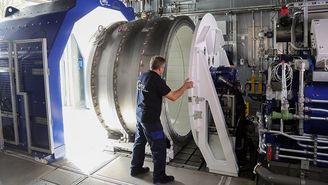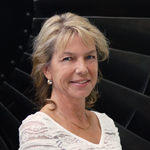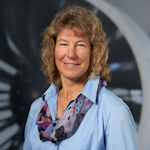
Metalworking processes
Metalworking processes
We use various metalworking processes for materials that are difficult to machine. MTU Aero Solutions offers you access to these processes:
- NC/CNC-controlled milling
- NC/CNC-controlled turning
- NC/CNC-controlled grinding
- NC-controlled drilling
- NC/CNC-controlled electrical discharge machining
- ECM/PECM (precision) electrochemical machining
With the CNC technology can also be machined very complicated 3D contours.
Benefit from the advanced technology of our CNC manufacturing systems:
- Clean work
- High quantities with consistent quality
- Constant production times (Planning of production)
- Wide variety of processing options
- Machining of complex work pieces
Electric discharge machining (EDM), sometimes colloquially also referred to as spark machining, spark eroding, burning, die sinking or wire erosion, is a manufacturing process whereby a desired shape is obtained using electrical discharges (sparks). Material is removed from the work piece by a series of rapidly recurring current discharges between two electrodes, separated by a dielectric liquid and subject to an electric voltage.
Electrochemical machining (ECM) is a method of removing metal by an electrochemical process. It is normally used for mass production and is used for working extremely hard materials or materials that are difficult to machine using conventional methods.
A further development of the classic ECM process is PECM (Precise Electrochemical Machining):
Customers expect advanced engines to be more efficient, burn less fuel and emit less carbon dioxides. To meet these requirements engine manufacturers are challenged to provide innovative solutions, such as more complex airfoil designs, and develop novel materials that are capable of withstanding higher temperatures.
Improvements in the compressor area include an optimized transition from the blade to the annulus, twisted airfoils, contoured leading edges and increased use of nickel-base alloys.
Conventional manufacturing processes can no longer be used here as they have reached the limits of their capabilities, both in terms of technical feasibility and cost-effectiveness.
The solution offered by MTU is PECM, the only manufacturing technique that permits complex airfoil geometries to be produced accurately and with a satisfactory surface finish in one single step. The surfaces thus produced do not require manual finishing and fully meet the customers' requirements.
Major advantages of process at a glance:
- Manufacture of complex airfoil geometries
- Good surface finish
- Cost savings





